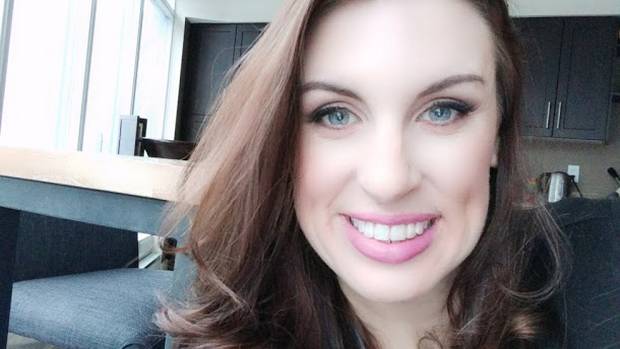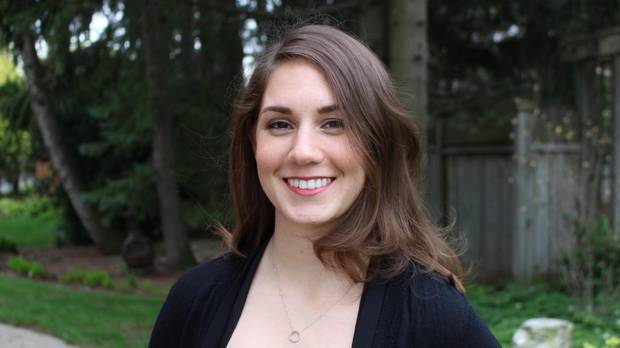Whether you've been investing for a few years or a few decades, chances are your money will soon be overseen by a millennial – if it's not already. More financial advisers are nearing retirement and bringing on millennials (who also make up nearly half of the work force) to help them take over the business for the long term.
The Globe interviewed three millennial advisers about how they got into the business and how they invest their own money.

Andrea Thompson, 35, senior financial planner, Raymond James in Toronto
Ms. Thompson was studying science at McMaster University in Hamilton when she decided to take on a summer job in the insurance business. That turned into a full-time position, and after taking some relevant courses, she became a financial planner in 2004. "I love to look at the holistic picture and put together the puzzle from the analytical side of the business," says Ms. Thompson. "I think that comes from the science/analytical background that I have."
In her personal portfolio, Ms. Thompson invests her long-term retirement money in mutual funds, hedge funds and exchange-traded funds (ETFs). "That's the stuff I set and forget," she says.
She's a bit more aggressive with her Tax-Free Savings Account (TFSA), which she sees more as "play money." The TFSA is where she holds individual stocks, including technology companies Shopify Inc. and Open Text Corp., as well as cannabis companies Canopy Growth Corp. and Aphria Inc. "They've all done well, but the market has done well," she says.
Ms. Thompson also put about $1,000 in cryptocurrency Ethereum last year, just to have some exposure to the alternative investment. She's seen a 400-per-cent return to date, but describes it as "hugely speculative" and not something she's recommending to her clients. "It's money I was 100-per-cent willing to lose."
She describes her personal investment as "aggressive," given that she's years away from retirement. "I'm not looking at my investments as something I need to be cautious with at this point," she says. "When I put money aside, it's intended to be there for decades."
Ms. Thompson says she likely takes more risks in the market than many people in her generation. "I think I can emotionally handle volatility because I understand how it works," she says. "Being an adviser, you understand that markets will go down. It's normal."
She says that riskier approach could change as she gets closer to retirement, depending on how the economy changes and what happens with interest rates longer term.

Simon Tanner, 36, principal adviser, Dynamic Planning Partners in Vancouver
Mr. Tanner started off working with a large insurance company before branching out on his own in 2007. "I believe we all have a relationship with money, either positive or negative, and working with people and educating them about that is always something I wanted to do," he says. His clients span generations, including some baby boomers that are parents of his younger millennial clients.
Mr. Tanner manages his money in a manner similar to that of his clients, relying mostly on actively managed funds and "tactical" asset allocation instead of a "strategic" approach. The difference, he says, is that tactical managers base their asset allocation on the market climate, instead of investing by set percentages, such as 80 per cent stocks, 10 per cent bonds and 10 per cent cash.
"I'll hold more cash at a time like this when I think markets are high," he says.
Today, Mr. Tanner holds about 65 per cent stocks, 20 per cent cash and 15 per cent fixed-income investments. His RRSPs include managed funds, primarily, and some ETFs. He's also a bit more adventurous in his TFSA, which includes two stocks: Canopy Growth and Alphabet Inc. "I'm a long-term investor … I understand and can stomach the risk," he says.
Mr. Tanner describes himself as an "aggressive" investor, unlike some clients his age, depending on their understanding of markets.
"I will typically be more conservative with more novice investors," Mr. Tanner says. "Even though their risk [self-assessment] may say they're aggressive, I may dial that down a notch or two, just because they haven't been through a 2008 … They haven't seen red numbers on a statement yet. They don't maybe know what it is to lose money in the short term and emotionally how they'll deal with that. It comes from understanding."

Susan Daley, 26, associate portfolio manager, PWL Capital Inc. in Waterloo, Ont.
Ms. Daley studied business at Wilfrid Laurier University and chose a career in wealth management because she wanted to work with people and families on their finances.
She's the outlier in the family: One of her older sisters went into mechanical engineering like her father, and the other older sister went into nursing like her mother. Ms. Daley says her dad was often researching his stocks, which is likely where she picked up some of her interest in the finance industry.
Ms. Daley is an index investor, similar to most of her clients. "I don't research individual stocks or try to time the market to outperform," she says. "I just diversify, focus on the asset allocation, taxes and capture the overall market through broad-based funds."
She holds two global index mutual funds in her personal portfolio: One is 100 per cent equities and is in her TFSA, and the second is 80 per cent equities and 20 per cent fixed income in an RRSP.
Ms. Daley describes her investing as "aggressive," given that she doesn't plan to withdraw the money any time soon.
"It's required to be riskier in order to get that outperformance [longer term]. That's simply my personal preference."
What's more, she has no immediate financial goals, such as buying a home, which often requires setting aside large chunks of money in more conservative investments in the near term.
"For me, it's mainly a lifestyle decision," Ms. Daley says of being a renter. "I don't want to deal with owning a house and all that it comes with."
Longer term, Ms. Daley says her investments will likely change to become more conservative, and more diversified. "As my assets become larger, I'll likely hold individual ETFs and mutual funds for the various asset classes rather than a global mutual fund," she says.